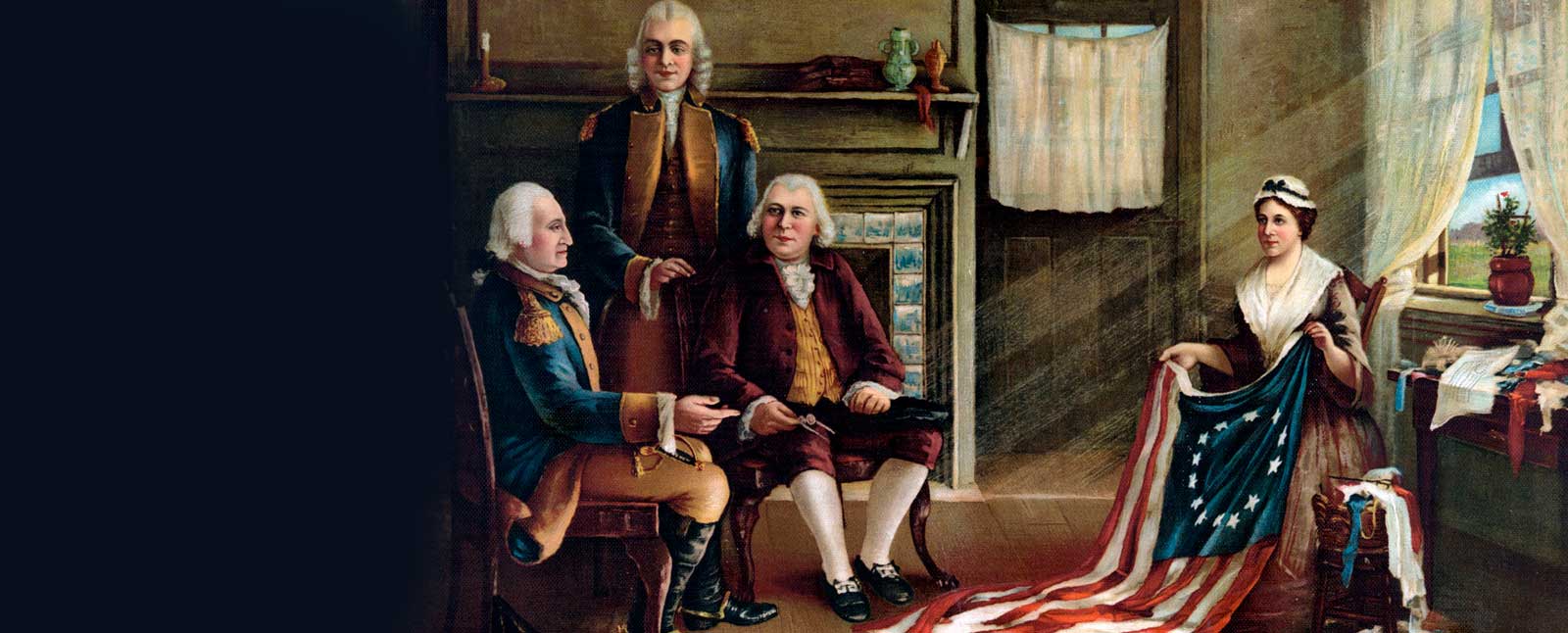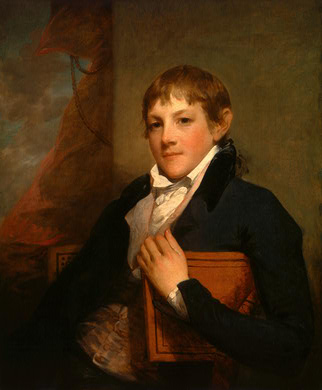Union and Liberty in Early America, Part II

In the last issue of “Front and Center,” we examined the nature of the American state and began to consider how early Americans worked out a way for the states to effect their security within a union that protected their liberty. In this issue, we will describe the American political order that prevailed among us from 1776 to 1861.
In 1963, Richard M. Weaver published an essay in the journal Modern Age titled “Two Types of American Individualism.”[i] Weaver was an important American political theorist best known for the book Ideas Have Consequences. In the essay we are considering, Weaver uses two iconic American figures as examples of individualism: John Randolph of Roanoke Plantation, Virginia, and Henry David Thoreau of Concord, Massachusetts. Weaver’s discussions of Thoreau and Randolph neatly outline the consequences for liberty of the views of the individual held by the Puritans who settled New England and the Anglican Cavaliers who migrated to the Tidewater region of Virginia. However, Thoreau represents the understanding of liberty and of union that came to prevail after 1865, and Randolph embodies the ideas of liberty and union in America before the war of 1861-65. For this reason, we will focus on Randolph. Weaver begins his essay writing:
Ours is an age in which individualism is publicly praised and privately snubbed: individual liberty is called the chief goal of all our striving, while at the same time we hear off-stage whispers to the effect that the social cost of individualism is too great a charge to be borne by a democratic world.
Individualism is resident deep in our history as a part of our heritage that we are urged to hold dear, Weaver says, yet the modern world presents us with tensions that drive many people to seek refuge in more collectivist political arrangements.

John Randolph was born June 2, 1773 on an estate named Cawsons (now in Hopewell, Virginia) near Petersburg. He was a member of the Virginia gentry but had an eclectic education attending at various times Princeton, Columbia, and William and Mary, after which he read law for three years under his uncle, Edmund Randolph, who was President Washington’s attorney general. Randolph began his political career as an unstinting defender of the sovereign rights of states in opposition to the aging Patrick Henry who, as he grew old, became an exponent of a strong central government. Over the course of his life, however, Randolph never wavered. Randolph’s biographer wrote of him: “He was the most consistent of all the politicians that ever lived in the republic.” What Randolph was consistent about was opposing what he saw as the tendency of Congress to move away from the republican principles in the Constitution, and importantly the principle of federalism, for these Randolph saw as the “anchor of liberty.” For example, Randolph was ardently opposed to establishing a national bank because there is no authority to do so delegated to Congress in the Constitution.[ii] This is by design. Delegates to the Philadelphia Convention in 1787 considered empowering the new federal government to charter corporations, including banks, but rejected the idea on grounds that the surest way to keep government within the strict limits assigned to it in the Constitution is to keep its purse light. A federal Congress with its own bank, or banks at its discretion, would thwart this important goal. Nevertheless, on February 25, 1791, during President Washington’s first term, Congress passed a law creating the First Bank of the United States.
In 1828, Randolph supported the election of Andrew Jackson as president. Randolph saw Jackson as a defender of state sovereignty and local self-government, but Jackson proved to be in favor of protectionist tariffs that did significant financial harm to southern planters. South Carolina had written into its ratification statement when it adopted the Constitution that it reserved the right to nullify within its borders any federal law it saw as opposed to the interests of South Carolinians. South Carolina nullified the tariffs; Jackson threatened to invade. Alarmed, Randolph appealed to an old political enemy, Henry Clay of Kentucky.
Clay was an important American politician who served in the House of Representatives as Speaker, in the Senate, and as Secretary of State. He was an ambitious man, but a skilled political negotiator who came to be called the “Great Compromiser” because of his ability to find acceptable middle paths between parties to political controversy. Clay was able to negotiate a compromise bill that eliminated (for a time) the principle of protectionism and reduced the tariff. South Carolina agreed to pay the reduced rates, and the standoff abated.
Weaver finds in this episode the key to understanding Randolph’s political philosophy. He describes it this way.
As a defender of the dignity and autonomy of the smaller unit, he was constantly fighting the battle for local rights. But it was the essence of his position that the battle must be fought within the community, not outside the community and not through means that would in effect deny all political organization. By instinct Randolph was perhaps a secessionist—every individualist is a secessionist in regard to many things. Individualism is a rejection of presumptive control from without. But Randolph never lost sight of the truth expressed in Aristotle’s dictum that man is a political animal. His individualism is, therefore, what I am going to call “social bond” individualism. It battles unremittingly for individual rights, while recognizing that these have to be secured within the social context.
The insight here is important, namely that while we have rights that are grounded in our nature, those rights can only be secured within a cultural and political tradition in which alone our rights make sense. Rights operate between and among human beings, and this is why we cannot have rights that are immune to the requirements of the community for order and peace, for this, like an acid, would dissolve the community. At the same time, we have rights the community exists to protect, and so in a healthy society, we live within a creative tension in which we must act to preserve and maintain our communities, while ensuring that the natural rights of individuals are protected. Americans are natural individualists, but individualism is expressed meaningfully only within the “social bond.”
We have an earlier example of this aspect of Randolph’s understanding of union and liberty during the movement in New England to secede from the union over President Madison’s dubious handling of the War of 1812. New England states suffered acutely because of an embargo that harmed the region’s economy. In anger, they called a convention in Hartford Connecticut to discuss secession from the union and the formation of a New England nation with its own economic and diplomatic relations with Britain. Randolph sent a letter to a prominent New England senator to express his concerns about the New England plan of secession.[iii] Randolph closes his letter with these words.
Our Constitution is an affair of compromise between the states, and this is the master-key which unlocks all its difficulties. If any of the parties to the compact are dissatisfied with their share of influence, it is an affair of amicable discussion, in the mode pointed out by the constitution itself, but no cause for dissolving the confederacy.
Note that while Randolph seeks to conciliate New Englanders, suggesting room for compromise, he does not their right to secede. This is because the understanding of the Constitution before 1865 is that it is a compact among sovereign states and that such compacts are, as a matter of law, contracts at will in which the parties involved remain by choice, thus retaining the right to negotiate peaceful separation when circumstances indicate no better option. This is what the New England states intended early in the 19th century, but by 1814, both sides in the war were tired of it and negotiated peace, thus cooling the zeal for secession among the people of New England. Randolph’s point here is that when disagreements arise, as they will, we must gather together to discuss them, and while we won’t be able to bring full satisfaction to every dispute, so long as all parties to a dispute bear the spirit of compromise where it is possible, disagreements should be “no cause for dissolving the confederacy.”
For Randolph and Americans in general, political union among the states was important, but a general government, like the one created in our Constitution, should have only a few and very broad concerns: security and making regular the laws affecting commerce among the states. It was important to ensure with strict attention that such government as Americans created remained confined within the limits of authority granted to it, for when a general government exceeds its authority, local autonomy pays the price. This is the balance of union and liberty in early America, and it expresses what for centuries had been understood in Europe as the principle of subsidiarity. This principle was developed in Catholic social thought and holds that in all matters affecting the common life of communities, nothing should be done by a higher order of society that can be done more locally. The principle is explained quite well in an article from the Acton Institute.
This tenet holds that nothing should be done by a larger and more complex organization which can be done as well by a smaller and simpler organization. In other words, any activity which can be performed by a more decentralized entity should be. This principle is a bulwark of limited government and personal freedom. It conflicts with the passion for centralization and bureaucracy characteristic of the Welfare State.[iv]
This last sentence contrasting the decentralizing effect of the principle of subsidiarity with the centralization of bureaucratic welfare states captures the contrast in this essay between the development of national states in Europe and the development of states in America. When we consider the present distemper in our country and think of how to address it, we should look to the resources we find in our own traditions. In other words, ours is a work of recovery, bringing to the fore, front and center, the significant practical wisdom we find in our past. Every human society is flawed because they are populated by flawed human beings. For this reason, it is most unwise to rage over the injustices of our past to the neglect of what is good and true in it, for we will miss what is there that can serve the cause of restoration for we Americans here and now. Of course, this requires a willingness to talk among ourselves, as John Randolph urged, listening and thinking, with honest intent to improve our condition. The union many of our ancestors had in mind, the union that preserves liberty, is a union not only of a horizontal type, embracing the present generation, but it is vertical also, embracing those who will come after us, and those who came before. We must learn from their mistakes, but we should learn also from their wisdom, for this is the path of recovery.
[i] Modern Age, Vol. VII, No. 2 (Spring 1963), 119-134.
[ii] Recall the principle of federalism enshrined in the 10th Amendment: “The powers not delegated to the United States in the Constitution, nor prohibited by it to the States, are reserved to the States respectively, or to the people.” The states have constitutional authority to charter banks, the federal government does not.
[iii] New Englanders seemed particularly suffused with the spirit of secession, making their first move in that direction in 1794, when the Constitution had been in effect barely five years, over concerns that the South would use its influence in the House of Representatives to dominate New England. They sought to create momentum for secession again in 1797 over disputes about foreign policy, and again in 1803 when President Jefferson purchased the Louisiana territory from France, alarming New Englanders that Jefferson was expanding the South at the cost of their influence in the federal union.
[iv] David A. Bosnich, “The Principle of Subsidiarity,” Acton Institute, July 20, 2010.


